The Best Workout To Slow Aging and Promote Longevity, Science Reveals
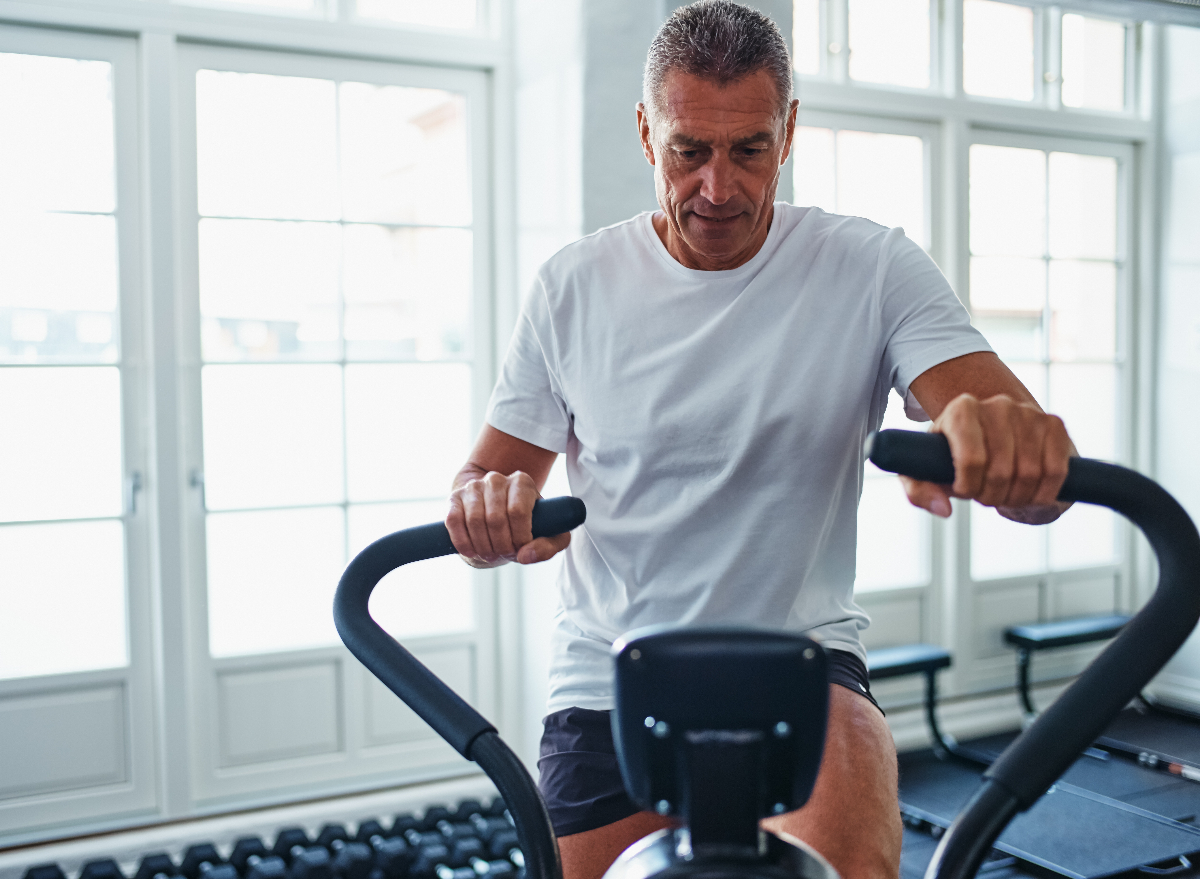
Want to whip up your own recipe for a fountain of youth and slow down aging? We’re going to tell you exactly how to do it. Research indicates that performing high-intensity workouts on a regular basis will foster longevity. You heard that right! High-intensity fitness is an amazing workout to slow aging and promote longevity. Ready to help yourself look and feel so much younger and healthier? We’re with you, so let’s get started!
Kicking up your aerobic activity each week can drastically improve, well, everything.
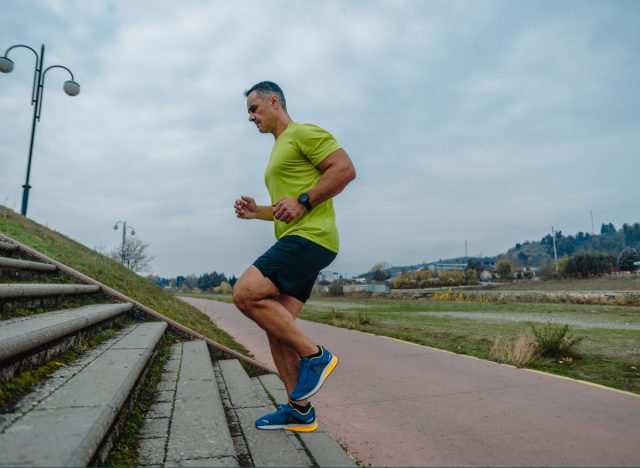
The recommended amount of moderately intense aerobic exercise for Americans, according to guidelines, is a minimum of 150 minutes each week, in addition to two days of muscle-strengthening exercise. But research indicates that kicking that amount of aerobic fitness up 3 to 5 times the minimum recommended amount can drastically improve your metabolism, heart health, risk of disease, and maximize your longevity. It may sound a bit intimidating, but performing around 7.5 hours of moderate exercise each week breaks out to just over one hour every day. That’s a small price to pay for a longer, healthier life, don’t you agree?
According to the review, which was published in the journal Current Opinion in Clinical Nutrition and Metabolic Care, you can totally safely work out even longer than that, although the benefits derived may not increase. When you are in middle age, a strong indicator of longevity is a high uptake of oxygen, and muscle mass is an extremely foretelling component when it comes to growing older.
Related: The Lifestyle Habits That Slow Down Aging, From a 100-Year-old Neurologist
High-intensity interval training can slow down aging and foster longevity—studies say so.
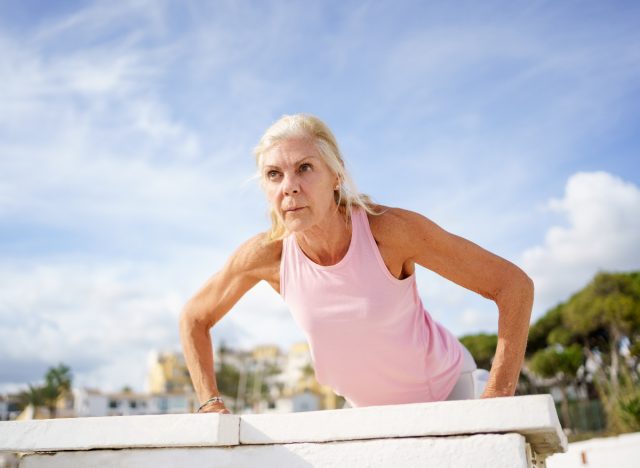
If your goal is to live a longer, healthier life, we can’t stress enough just how important it is to add high-intensity interval training (HIIT) to your weekly regimen. HIIT is a workout that switches between vigorous bouts of exercise and moves at a slower pace. According to AARP, studies indicate that on a cellular level, performing HIIT workouts can slow down the aging process.
Related: What Science Says About the Exercise Habits That Slow Aging
More research links high-intensity workouts to longevity.
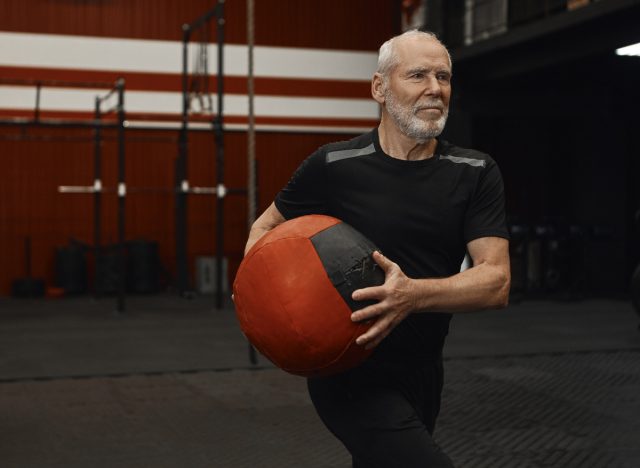
Researchers studied 1,567 individuals in their 70s for a period of five years (via ABC News). The participants were broken into three groups. Groups 1 and 2 performed high-intensity interval training (HIIT) or repeated training at a moderate intensity, two times each week. Group 3 performed the national guidelines for physical activity. To the researchers’ surprise, Group 3 far exceeded the workouts of Groups 1 and 2, because they actually worked out more intensely those who performed their exercise at a moderate level.
According to one of the authors of the study, Maria Fiatarone Singh from the University of Sydney, “The HIIT group came out the best in terms of mortality,” adding, “It increased aerobic fitness more than the other two groups. So that was significant, and it increased quality of life, both mental and physical.” It’s also important to know that there are many ways to plan out your workout. Singh says,”You don’t have to run to be at high intensity,” adding, “You can climb stairs or walk briskly uphill and you’ll be at 90 per cent of peak heart rate, if you’re an older adult. The idea that you have to run, which is off-putting for many people because of arthritis, is not the case, and there are lots of low-impact ways to do it.”
Exercising is just as important to enhancing your life while you’re living as it is to ward off mortality.
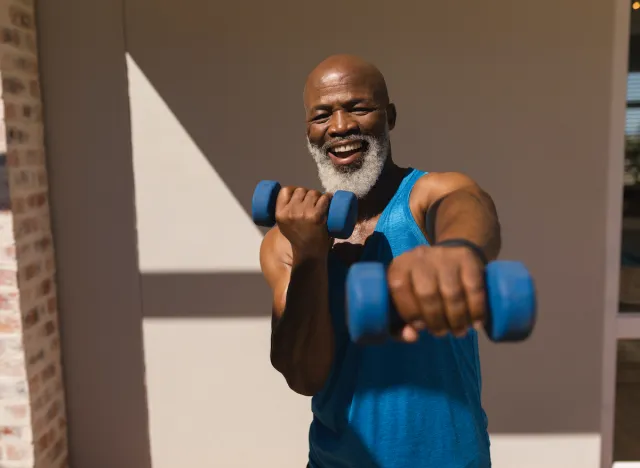
Working out is just as important to bettering your life while you are living as it is to ward off mortality, according to Professor Wendy Brown from the University of Queensland (via ABC News). Brown also points out that while individuals of all ages can reap the benefits of regular physical exercise, continuing to do so as you grow older is crucial. She refers to the study and comments, “What was amazing was in these hundreds and hundreds of people, they went for five years,” adding, “They went through knee replacements. They went through hip replacements. They went through all kinds of other health things that happen with [aging.] And then they went back and joined the group afterwards. The minute you stop doing it [exercise] as you age, the wheels start to fall off.” Above all? She suggests, “I don’t think it matters as long as you keep doing it.”